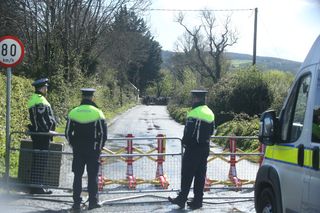Barristers say poor pay is forcing them to quit
The body representing barristers has called on the Government to restore fees paid to criminal practitioners following an exodus from the profession.
Figures reveal two-thirds of barristers who start out practising criminal law end up leaving within six years.
The Bar of Ireland has claimed the high attrition rate is down to a refusal by the Government to reverse fee cuts of between 28.5pc and 69pc implemented between 2008 and 2011 following the financial crash.
The cuts, as well as the increasing complexity of criminal cases and better fees in the civil courts, have made it unattractive and unrealistic for recently qualified barristers to pursue a career in criminal law, the representative body said.
The Bar has ramped up a longstanding campaign to restore fees, writing to every TD and senator in the Oireachtas in recent weeks.
However, it has ruled out the prospect of organised strike action similar to that seen in England in recent years.
The Bar of Ireland campaign comes three years after a process sanctioned by the Department of Public Expenditure and Reform with the Office of the Director of Public Prosecutions and the Department of Justice concluded a reversal of cuts made during the economic emergency was justified.
“This is the same Government and same politicians who will regularly bang the drum of law and order when it suits them and yet forget that those on the coalface in those cases, the prosecution and defence barristers, are not being paid at rates sufficient for the work they are doing, said Bar Council chairperson Maura McNally SC.
“While there is a perception that the barristers’ profession is one that is highly remunerated, the fact is that junior barristers appearing in the District Court in criminal matters are paid €25 for an appearance and this is often their only fee earned in a day.”
Ms McNally said it can take up to 10 years of practice to earn a living as a barrister, with many newly qualified members of the profession having to take second jobs in restaurants and pubs.
She said fees were now at levels similar to 2002 – rates she believes are “not sufficient” for the amount of work involved in criminal cases.
Ms McNally said cases had become increasingly complex over the past decade, largely due to voluminous disclosure of mobile phone and other electronic evidence.
According to a letter sent by Bar of Ireland chief executive Ciara Murphy to the Office of the DPP last November, of 23 barristers who began devilling in criminal law in 2013/14 only six remained in criminal practice six years later.
Dara Hayes BL, chair of the Criminal State Bar Committee, told the Irish Independent the drop off rate was now about twice as high for barristers in criminal law compared to those who concentrated on civil work.
A particular issue of concern, he said, was that quite often defence teams are unable to claim fees for the examination of disclosed material, even though it could be crucial to their case.
He said the system for examining such material had become one based on goodwill. “We would very much hope that the system being held together by a thread will hold together. But the more you increase the risk the greater the chance is of there being difficulties, which ultimately could be a miscarriage of justice,” he said.
The Department of Public Expenditure and Reform said requests from The Bar of Ireland for restoration of fees to criminal barristers were “under consideration” and would be “examined further in the context of wider public pay policy and expenditure implications”.
Join the Irish Independent WhatsApp channel
Stay up to date with all the latest news














